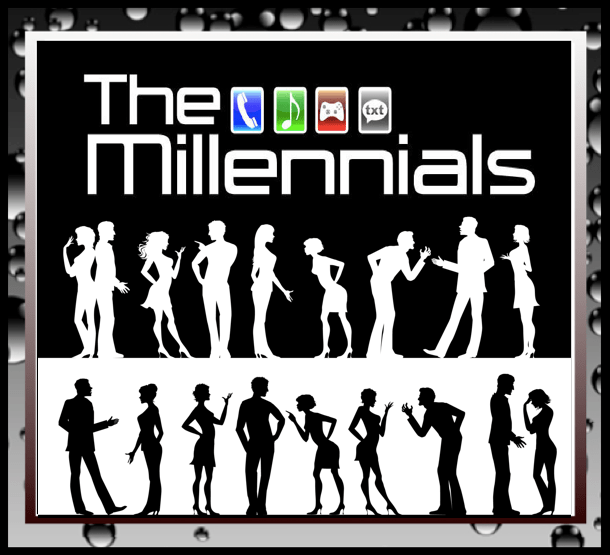Are We Worshiping Millennials?
It seems like nearly every church leadership article over the past couple of years is about “Millennials” or those born after 1980. I wonder – are we verging on millennial worship?
Having been born in 1975, I’m on the tail end of Generation X (those born between 1960-1979), though I relate a bit more to Millennials than I do Boomers (1946 to early 1960). I’m no expert but I think I have some room to speak, especially since our church is primarily composed of Millennials (about 75%), and my city, Cambridge, MA, was recently deemed the best city in the United States for Millennials. [i] I love hanging out with Millennials and intentionally put them around me. I value their opinions and leadership. In fact, the the majority of the most influential team in our church (we call them the lead team) is made up of single Millennials! It’s very important to me that we are engaging them and reaching them. We didn’t necessarily plan it that way, we are simply reaching one of the largest demographics in our city. When I ask this question, are we worshiping Millennials, I’m not coming from a place of pessimism but rather a place of concern. Let me explain…
Back in time…
Early in the 21 st century, there seemed to be a church wide emphasis on reaching the next generation – at least in the circles where I was involved. It was imperative that older leaders were reaching and empowering the younger generation and entrusting them with leadership. In my fellowship of ministers, they were seeking to get more young people to become credentialed ministers and encouraging pastors to help bring them through the process and train them in their local churches. That challenge remains the same for every generation. The Church is always one are one generation away from extinction. As with anything, too much of a good thing can become unhealthy if we are not careful – turning from a healthy emphasis to an unhealthy obsession. I saw this in full swing, as there was a huge leadership transition from the older to the younger, sometimes at the expense of the young leaders. I watched some young people crash and burn because they were given responsibility they weren’t ready for with inadequate training and oversight.
Every generation is important
Right now, there are five generations alive on the earth. There are more generations alive together than at any other time in history. So I ask you, should we be focusing solely on Millennials? Anytime you put too much emphasis upon one generation, it has the potential to become idolatry. It’s not good for the people group being overly emphasized and it’s not good for the church. Things become all about them instead of all about God and His purpose. In God’s heart and purpose, there exists a place for that emphasis but it should never surpass the emphasis on Jesus Christ Himself or on all people. We should be living for the good of others, not just the good of Millennials. What does this communicate to people of other generations? That they are less important than the one generation we are trying to reach? The generation that is being emphasized begins to believe it is all about them. They are important yes, and we need to reach them, but so is every other generation. What about the X’ers who feel lost between Boomers and Millennials? What about Boomers who have tons of wisdom and resources to share to help the kingdom of God go to the next level? What about the Traditionalists (born before 1946) who have so much life experience and many of whom may feel lonely and forgotten?
Should Millennials be the “center?”
My fear is that the pendulum is beginning to swing too far. We need to engage, reach and empower millennials, but it’s not healthy to revolve everything around them. No generation can handle that type of attention without letting it go to their heads. If everything revolves around a specific group of people, it’s easy to think, “It’s all about us” instead of saying, “It’s all about Jes-us!”
It’s not about us, it’s about Jes-us
Click To Tweet
Are you alienating Millennials?
The opposite is also true. When the generations with the power and resources (X’ers and Boomers) attempt to hold on too long; when they don’t involve Millennials in the decision making process or give them actual authority to act; when they don’t put a high value on reaching them; Houston, we have a problem! This alienates Millennials, telling them they have no place in our churches, organizations or power structures and as a result they don’t feel it is worth their time.
Practical ways to reach and keep Millennials
How can we reach and keep Millennials? Here are seven simple things you can start implementing right away:
- Invest in Millennials. Unlike some previous generations, Millennials have a strong desire for mentors and relationships with older adults. If they don’t see an opportunity for this, they might not stick around. Whether formal or informal, take some time to invest in them. Enlist the X’ers, Boomers and Traditionalists in your church to do the same. What could be more fulfilling than taking your wisdom and experience and using it to help someone else go further than you?
- Help Millennials engage culture and bring change. Christianity is not a sub-culture, it’s a counter culture. Taking time to help Millennials see how they can engage the culture with their faith is ultra important to them. Many already view the church with skeptical eyes, so any effort you can put into reaching into the community in practical, helpful and loving ways will go a long way.
- Put Millennials in visible places. Don’t be afraid to put them up front or in visible places. Whether it’s announcements, preaching, worship or some other visible role, show them that they have a place in your organization. When other Millennials see this, they will know there is a place for them.
- Give Millennials a place at the table. Include Millennials in your decision making team or at least invite them in to hear their thoughts and opinions. If you do that, be sure to use some of their input (you probably need it anyway). In our young church, we have provisional elders, most of which are far away. So I have what I call a “Lead Team.” This is a team of people who help me process, think through and make decisions for the church. Three out of five people on that team are single Millennials and two are females.
- Give Millennials real authority . I’m not saying give it to them if they can’t handle it or just for sport. Mentor them, equip them and release them to use what you’ve taught them. If they have the goods, don’t hold them back just because they are young.
- Leaders, be authentic. I know that’s a buzz word nowadays that means a lot of different things, but it’s true. The worship or preaching style of your church isn’t as important as being authentic. Sure, work on your style, try to stay at least a little relevant, but most importantly just be authentic and real.
- Be available. They can get any preacher or any worship album right from their phone. There is always someone better than you. But they can’t get a personal touch or lock eyes with their phone. So be their pastor. Be their leader. Be their shepherd. Be their friend. Help them navigate this ever changing world with principles and words that are eternal and unchanging. They really need you.
A Word To Millennials…
It seems there is a lot of talk about what Millennials want in a church. While this isn’t bad, some of you are using it as a reason to turn away from the church instead of leveraging your influence to bring change to the church. Although there is the possibility that some churches are resistant to change, there are many that welcome your influence and want to change, they just don’t know how. So instead of bouncing around until you find the perfect church (which is impossible because none exist), how about bringing what you have to the table? Why not commit and put down roots? I know commitment can be a scary word for you, but it’s a good word. It’s what God did for you and it’s what He expects of you. You can’t change anything without commitment. So why not gain influence the good old-fashioned way – by committing and serving sacrificially?
Delight yourself in the LORD; And He will give you the desires of your heart. Commit your way to the LORD, Trust also in Him, and He will do it. (Psalm 37:4-5 NIV)
Commit your way to the Lord? No problem. Commit to the church? That’s a little harder for some of you. It may be hard, but it’s necessary. God has been using His Church (in many different forms) for two millennia and He’s not about to stop now. So, Millennials, I’m appealing to you. Rather than use your influence and disenchantment as a reason to leave the church, or to complain about the church, or to fuel discontentment in others, why not leverage your influence to help the church. Remember, in whatever state, Christ loves His bride, the Church, and wants what’s best for her. Ultimately, you are a part of the whole. You are one generation among many. Bring what you have to the table and use it for the betterment of the whole.
Discussion
What are your thoughts on Millennials and the church? What is your experience? I would love to hear from Millennials and leaders alike!
Other posts you might enjoy
Good articles on Millennials
- http://www.theamericanconservative.com/olmstead/millennials-search-for-religious-authenticity/
- http://www.christianitytoday.com/edstetzer/2014/september/how-to-effectively-reach-and-retain-millennials.html
- https://www.barna.org/barna-update/millennials/635-5-reasons-millennials-stay-connected-to-church.html
- http://www.millennialevangelical.com/5-reasons-why-there-are-no-millennials-in-your-church/
- http://religion.blogs.cnn.com/2013/07/27/why-millennials-are-leaving-the-church/
[i] http://www.forbes.com/sites/kathryndill/2015/05/13/the-best-cities-for-millennials-right-now/
Photo credit, Anise Smith – Flickr
Share this Post:












